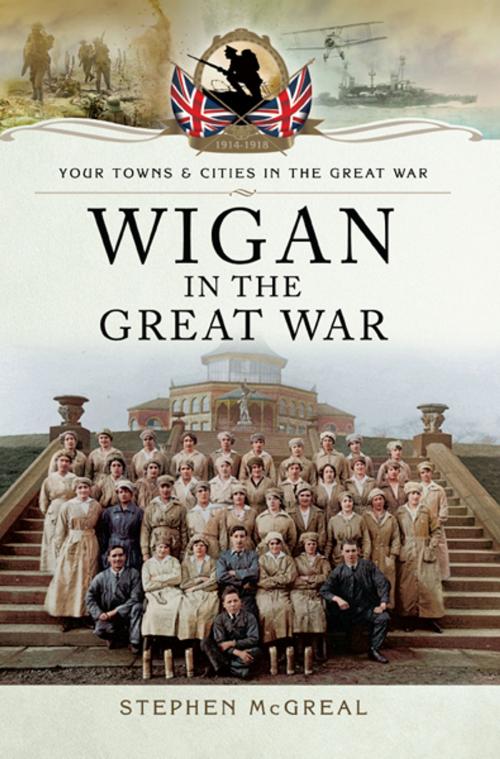| Author: | Stephen McGreal | ISBN: | 9781473873773 |
| Publisher: | Pen and Sword | Publication: | June 30, 2016 |
| Imprint: | Pen and Sword Military | Language: | English |
| Author: | Stephen McGreal |
| ISBN: | 9781473873773 |
| Publisher: | Pen and Sword |
| Publication: | June 30, 2016 |
| Imprint: | Pen and Sword Military |
| Language: | English |
On 4 August 1914, Britain declared war on Germany. Originally perceived as a short campaign to curtail Germanic imperialism, it developed into a catastrophic four-year-long war of attrition. The First World War is justifiably associated with the horrors of trench warfare and the death of a generation, but history has overlooked the Home Front’s colossal contribution to victory.
Shortly after the declaration of war, Lord Kitchener appealed for recruits for a new citizen’s army. Within four months 4,360 men from Wigan alone responded to the call, and by September 1914, the districts 5th Manchester Territorial Battalion were in Egypt. Everyday life altered immeasurably after the men left for war, those too old for military service worked in munitions factories, joined a Dad’s Army or ‘dug for victory’.
The conflagration changed the political and social make up of Britain, allowing most women to escape a life of drudgery by filling occupations vacated by army recruits. The furtherance of the war effort involved every civilian from school age upwards in fundraising for hospital equipment and groceries, ambulances and the provision of a diverse range of home comforts for those at the Front.
Compiled predominately from contemporary newspaper and first-hand accounts, this is the first book to deal specifically with the contribution to victory made by the townspeople of Wigan and the nearby district.
On 4 August 1914, Britain declared war on Germany. Originally perceived as a short campaign to curtail Germanic imperialism, it developed into a catastrophic four-year-long war of attrition. The First World War is justifiably associated with the horrors of trench warfare and the death of a generation, but history has overlooked the Home Front’s colossal contribution to victory.
Shortly after the declaration of war, Lord Kitchener appealed for recruits for a new citizen’s army. Within four months 4,360 men from Wigan alone responded to the call, and by September 1914, the districts 5th Manchester Territorial Battalion were in Egypt. Everyday life altered immeasurably after the men left for war, those too old for military service worked in munitions factories, joined a Dad’s Army or ‘dug for victory’.
The conflagration changed the political and social make up of Britain, allowing most women to escape a life of drudgery by filling occupations vacated by army recruits. The furtherance of the war effort involved every civilian from school age upwards in fundraising for hospital equipment and groceries, ambulances and the provision of a diverse range of home comforts for those at the Front.
Compiled predominately from contemporary newspaper and first-hand accounts, this is the first book to deal specifically with the contribution to victory made by the townspeople of Wigan and the nearby district.















